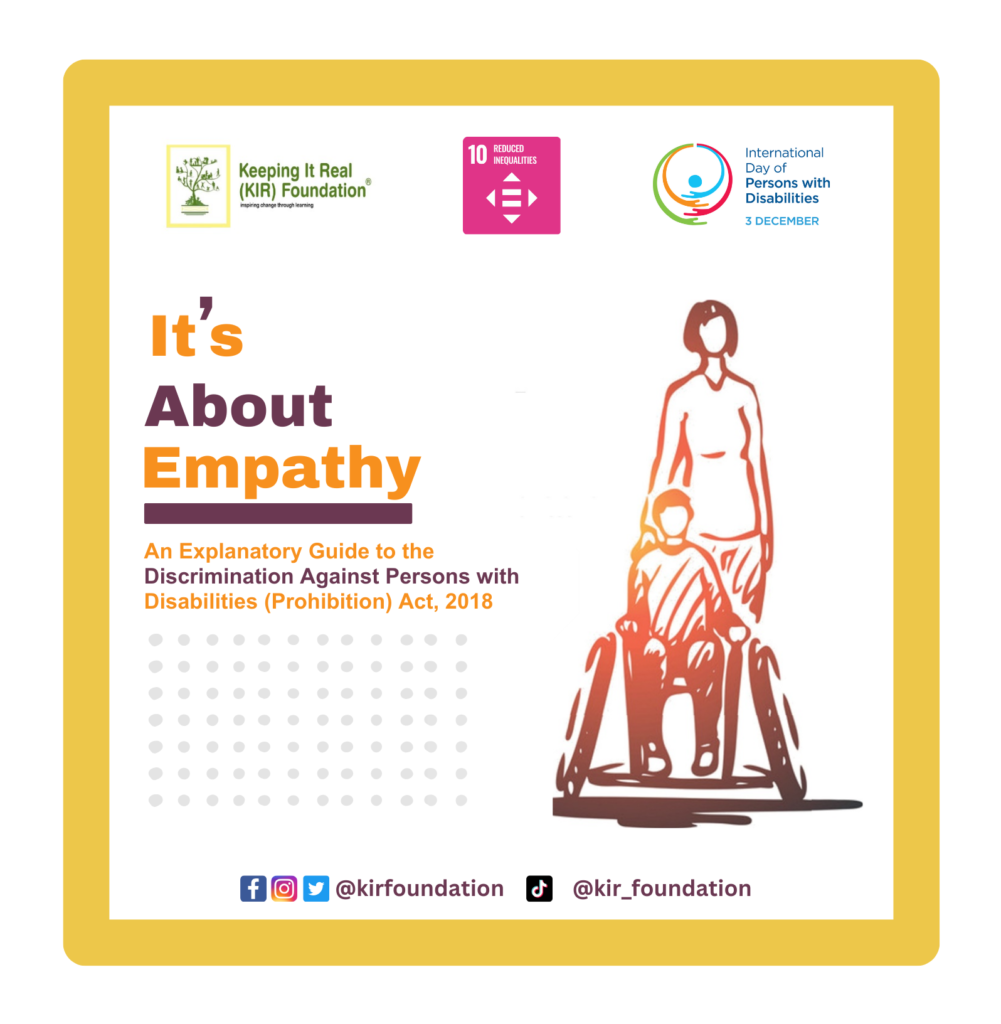The Nigerian Disability Act: Beyond Paper Promises to Lived Realities!


In 2018, Nigeria joined the ranks of nations committed to disability rights by signing the Convention on the Rights of Persons with Disabilities (CRPD) when it enacted the landmark Discrimination Against Persons With Disabilities (Prohibition) Act (DPDPA), 2018. The Act which is a product of the first Human Rights Convention (CRPD) of the 21st century, promised a revolutionary shift in how persons with disabilities are perceived and treated in society, not as limited by their disabilities but as human beings first. The Act goes beyond providing accessibility for Persons with Disabilities (PWDs) to make provisions for PWDs as equal citizens deserving of dignity, respect, and full participation in society.
However, lofty promises written on paper only sometimes translate to lived realities. Five years on, the deadline on the moratorium of the provisions of the Act’s expires today, January 19, 2024. While very little progress has been made, the journey towards inclusion and integration of PWDs in Nigerian society remains riddled with obstacles and frustrating for PWDs. The sentiment in the disability community is that progress has been painfully slow, with little or no significant change!
Although the National Commission for Persons with Disabilities (NCPWD) was established by the Federal Government of Nigeria under Section 31 of the Discrimination against Persons with Disabilities (Prohibition) Act, 2018 to promote, protect, and prioritise the rights of PWDs and to enhance their productivity through education, health, and other socio-economic activities, it has been grossly underfunded. Therefore, it has been unable to implement government services and actions into systems that equally and meaningfully drive the representation and participation of Nigerians with disabilities, especially in all procedures and processes around designs, implementation, budgeting, enforcement, and monitoring.
Yet, amidst the challenges, there are flickers of hope. The Act’s criminalization of discrimination against persons with disabilities is a potent weapon against prejudice. It sends a clear message: disability must not be used as an excuse to deny or restrict people’s rights, and treating someone differently because of disability is an offence punishable by law.
This shift in perspective is what truly sets the Act apart. It does not see people with disabilities as a separate category worthy of special treatment, but as humans first, with the same inherent rights and aspirations as anyone else. It is about recognising the diversity of human experience and ensuring that everyone, regardless of ability, has the opportunity to thrive.
However, advocacy for disability inclusion is not a spectator sport or the sole responsibility of persons with disabilities. It requires empathy, action, and a collective voice. That is where you come in. Share your stories, amplify the voices of the unheard, and demand accountability from our leaders. We encourage you to engage with disability rights organisations like the Joint National Association of Persons with Disabilities (JONAPWD), follow advocates like @EpelleJake and Disability Rights Advocacy Center (@DRACNigeria), read and spread the word about KIR Foundation’s It’s About Empathy: An Explanatory Guide to the Discrimination Against Persons with Disabilities (Prohibition) Act, 2018.
Today, the 19th of January, 2024, we ask you to join us in commemorating the end of the 5-year moratorium on the Disability Act, 2018 by calling on the government to empower NCPWD with the funds needed to make the Disability Act a working document. Then, every day after the 19th of January, join the ongoing movement for a disability #InclusiveNigeria by urging the private sector and individuals to implement the provisions of the Act. Kindly support the movement to make the Discrimination Against Persons With Disabilities (Prohibition) Act (DPDPA) 2018 more than just words on paper. Please join us to ensure that the Act becomes the foundation for a society in which everyone can stand tall, side by side, and build a future where disability is not a barrier but a part of everyday life, because ultimately, social inclusion can promote more empathetic and prosperous communities.
This call to action is not about ticking boxes and meeting deadlines. It is about human dignity, creating a world where everyone has the right to belong, dream, and contribute. The time for empty promises is over. Let us join hands, raise our voices, and make the Discrimination Against Persons With Disabilities (Prohibition) Act (DPDPA) 2018 a reality, not just on paper but in the hearts and lives of every Nigerian.
Together, we can make the Act a reality!
Together, we can make Nigeria disability-inclusive!
Together, we can make Nigeria a nation where disability is not a disadvantage but a celebration of human potential!





Responses